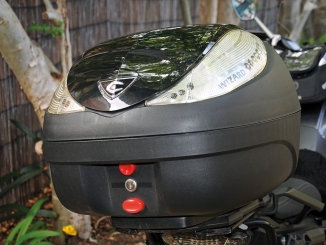
Three-word phrases can be intimidating and foreboding, prescient even. “I’m leaving you”, “Oh my God”, “Make my day”, “I shall return”, spring to mind – a form of speech sometimes referred to as ‘tripling’. But lately, another has entered the lexicon, and it touches all of us, sooner or later. “No longer supported”.
In a commercial situation, often conducted across the inappropriately-named Customer Service counter, I can usually anticipate the arrival of this turn of phrase by simple observation of body language. The salesperson gives a wry smile and a barely detectable shrug of the shoulders as he or she prepares to let you down gently, but with zero recourse. “I’m sorry, but that (product, system, chain of belief) is no longer supported”. Translated, this means the company, organisation or individual responsible for the continuing supply of spare parts, information or technical support has fulfilled the statutory requirement (perhaps seven years) and henceforth washes his, her or their hands of any and all further responsibility to the product or service created and sold to you.
I still have a GE electric carving knife that works as well as the day I (we) received it as a wedding present 43 years ago, but should it fail and a part be required, you will find it is “no longer supported”. And in the electronic gadget-driven world of computers, phones and the like, there is a built-in obsolescence of ‘platforms’ that mean A, will no longer be compatible with B, like a metaphoric square peg in a round hole.
Sometimes, when you bring your camera, phone, electric drill, wristwatch or kitchen whizz to a retailer’s Customer Service counter, you may even detect a degree of sympathy from the attendant who tells you there’s an old bloke who lives in a caravan near the local tip who might be prepared to have a look at it for you (but not on a Thursday, that’s his ‘drinkin’ day’) – but, and here’s a six-worder – it would be “cheaper to buy a new one.” Look to the end of the counter and there will probably be a (recycled) cardboard bin where you can dispose of your no longer functional (or supported) implement, presumably to soon reappear as a toilet brush once it has been melted down, decontaminated and disinfected.
Remarkably, and in the face of the modern trend of no longer supporting virtually anything, you can still buy many ancient components from the original manufacturer; certain high-end (usually German) cameras for example, or parts for Japanese motorcycles made before about 1970. In the case of the latter, the Japanese, as they marched en masse into European and American markets in the late ‘fifties and ‘sixties, were determined not to repeat the mistake of the British factories that often found difficulty in supplying parts for even their current models. The Japanese, in those pioneering days, over-produced spares to such an extent that there are still large stocks available today. Conversely, you will often find that parts for later and more modern motorcycles are to a large degree, ‘no longer supported’.
Jim Scaysbrook
Editor



